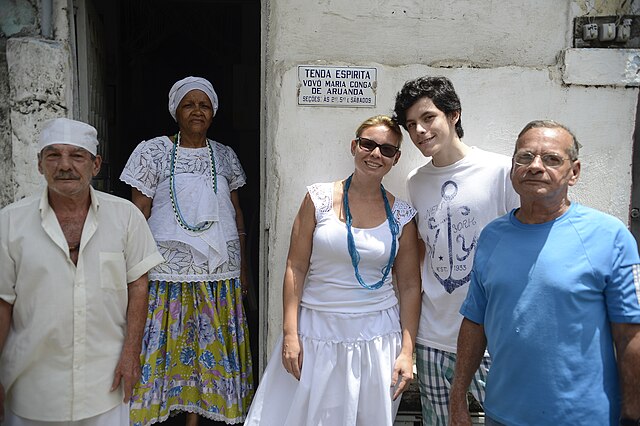Umbanda is a religion that emerged in Rio de Janeiro, Brazil in the 1920s. Deriving largely from Spiritism, it also combines elements from Afro-Brazilian traditions like Candomblé as well as Roman Catholicism. There is no central authority in control of Umbanda, which is organized around autonomous places of worship termed centros or terreiros, the followers of which are called Umbandistas. The religion is broadly divided between White Umbanda, which is closer to Spiritism, and Africanized Umbanda, which is closer to Candomblé.
Umbanda practitioners at a centro in Rio de Janeiro
A group of Umbandistas in Rio de Janeiro
An Umbandist centro in Rio de Janeiro
An Umbandista dressed in ritual attire
Spiritism or Kardecism is a reincarnationist and spiritualist doctrine established in France in the mid-19th century by writer and educator Hippolyte Léon Denizard Rivail. Kardec considered his doctrine to derive from a Christian perspective. He described a cycle by which a spirit supposedly returns to material existence after the death of the old body in which it dwelled, as well as the evolution it undergoes during this process. Kardecism emerged as a new religious movement in tandem with spiritualism, the notions and practices associated with spiritual communication disseminated throughout North America and Europe since the 1850s.
Allan Kardec, portrait from L'Illustration, 10 March 1869
Parisian salon with people practicing three variations of table-turning using a ring, a table, and a hat. (L'Illustration, Histoire de la semaine, May 14, 1853).
"To be born, to die, to be reborn yet again, and to constantly progress, such is the law", in French on Kardec's tomb.
Publication of The Spirits' Book from 1860 in Paris








